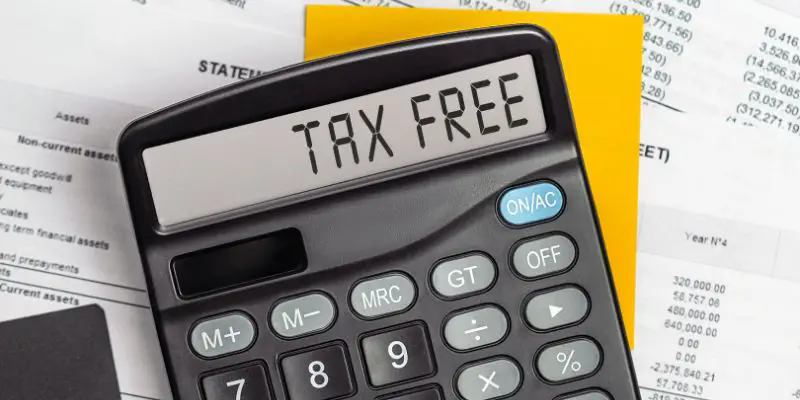In the UK, you can dispose of up to £12,300 worth of crypto assets per tax year without incurring capital gains tax. This tax-free allowance applies to the combined gains from all chargeable assets.
Understanding the tax implications of cryptocurrency transactions is crucial for UK investors. The tax-free allowance, known as the Annual Exempt Amount, serves as a threshold below which capital gains tax is not applicable. This provision allows crypto enthusiasts to plan their asset disposal strategically to minimize tax liability.
Staying informed about tax legislation updates is essential, as crypto markets evolve and authorities refine regulations. Engaging with this fiscal aspect ensures investors can make well-informed decisions while complying with the UK’s tax requirements. Keeping an eye on one’s total gains throughout the year is a smart move to avoid unexpected tax charges.
The Uk’s Stance On Crypto Taxation
The UK government views cryptos like Bitcoin and Ethereum as property. This view shapes how they tax these digital assets. Dealing with cryptocurrencies can call for different taxes. Capital Gains Tax (CGT) is the main one to know about. You might pay this when you sell crypto for more money than you paid. Or when you use it to buy something. Or even when you give it away.
Income Tax might also apply if you get cryptos from mining or a job. The Her Majesty’s Revenue and Customs (HMRC) keeps an eye on all this. They want you to tell them about your crypto gains and income. HMRC has guidelines to help you understand what to do.
| Tax Type | When It Applies |
|---|---|
| Capital Gains Tax | Selling crypto for profit, buying with crypto, gifting |
| Income Tax | Crypto earned from jobs or mining |
In the UK, you can earn some crypto without paying tax. This is due to the tax-free allowance. It’s about £12,300 for CGT and £1,000 for other incomes. This means small gains might not be taxed. Keep records of all your crypto actions to stay safe.

Thresholds For Crypto Taxation
The UK offers a Capital Gains Tax (CGT) allowance. This is a tax-free threshold. For the tax year 2022/2023, the allowance is £12,300. This means you can earn up to £12,300 in gains without paying tax. If your crypto assets exceed this limit, you’re subject to CGT.
Additionally, your regular income can affect your CGT rate. Earnings within the basic income tax band attract a CGT rate of 10% for crypto gains. For earnings above the higher rate threshold, the CGT rate rises to 20%. These rates apply after using your annual allowance.
You must also pay Income Tax on any crypto received as earnings. The basic income tax rate is 20% for earnings up to £50,270. The higher rate of 40% applies to earnings between £50,271 and £150,000. The additional rate of 45% is for earnings above £150,000.
Tax-free Crypto Activities
Understanding tax rules on crypto is crucial for UK residents. Gifting crypto to spouses or civil partners is not taxed. But, there are limits. Only gifts up to £3,000 per year per donator escape taxation.
The tax situation is more complex with other recipients. Regular gifts from your income are tax-free. They must not affect your lifestyle. Other exemptions also exist, like for wedding gifts, which have distinct limits.
| Recipient | Gift Amount | Tax Status |
|---|---|---|
| Spouse/Civil Partner | Unlimited | Tax-Free |
| Others | Up to £3,000/year | Tax-Free |
| Wedding Gift – Child | Up to £5,000 | Tax-Free |
| Wedding Gift – Grandchild | Up to £2,500 | Tax-Free |
| Wedding Gift – Other | Up to £1,000 | Tax-Free |
Swapping one crypto for another or using crypto to pay for goods/services is taxable. Tax is due only when disposing assets, like selling crypto for fiat, exchanging, or using it for goods/services. Some transactions, like betting with crypto, are normally not taxed.

Crypto Tax Saving Strategies
Understanding your annual tax allowances is key to minimizing crypto taxes in the UK. Each tax year, you have a capital gains tax allowance. This means you can gain a certain amount without paying tax. The amount changes each year, so always check the latest figures.
Smart investors use losses to their advantage by offsetting them against gains. This method can reduce your taxable income. Keep detailed records of all transactions. This ensures accurate reporting and better tax planning.
Handling Airdrops And Forks
Understanding tax exceptions for airdrops in the UK requires a brief explanation. Airdrops are free crypto tokens sent to your wallet. The HM Revenue & Customs (HMRC) makes a distinction:
- Airdrops received without doing anything (without “quid pro quo”) are not subject to income tax.
- But, if you provide a service or task in exchange, they become taxable.
Hard forks create a second coin from a pre-existing one. The new coin has its own value. Whether these are tax-free depends on individual circumstances. An example is if you lose all access to the original coin, no need to pay tax might apply. Yet, guidance can change and professional advice is always best.
Hmrc’s View On Staking And Mining
The UK’s HMRC considers both staking and mining in the cryptocurrency world. Not all activities result in taxes. Specific conditions allow staking to be tax-free. A person’s tax status, transaction size, and frequency impact this.
For instance, casual staking might not trigger taxes. The tax treatment for mining is similar. You may not owe tax if mining is small-scale and infrequent.
You get an annual tax-free allowance. For the 2022/2023 tax year, this is £12,570. Earnings below this amount from mining or staking might not be taxed. Remember, rules change and are complex. Always check the latest allowances and guidelines.
Reporting And Paying Crypto Taxes
Fulfilling your tax obligations with cryptocurrencies requires precision. It’s crucial to understand the threshold for tax-free crypto assets. In the UK, you can enjoy a tax-free allowance. Gains below £12,300 (for the tax year 2022/2023) fall into this category.
Self-assessment tax returns are the method for reporting crypto activities. Submit these forms annually to HM Revenue and Customs (HMRC). The deadline for online submissions is January 31st following the end of the tax year. Missing deadlines can lead to significant penalties.
Failure to comply invokes a minimum £100 penalty. This amount increases over time, adding to the financial strain. Avoid unnecessary costs by filing and paying on time. Seek help if unsure about the process to ensure all crypto transactions are properly reported.
Faqs On Crypto Tax-free Savings
Understanding crypto tax regulations in the UK is crucial.
Many people think all crypto earnings are tax-free, which is wrong. The tax-free amount for crypto gains is up to £12,300 (as of the current tax year).
This limit is known as the Capital Gains Tax allowance. Gains above this amount are subject to tax.
Trading crypto is not the same as saving in a bank. It does not have the same tax benefits as an ISA.
Always keep records of your transactions. You may need them for the HMRC.
For more information, visit the official HMRC website.

Frequently Asked Questions For How Much Crypto Is Tax Free Uk
How Much Crypto Can You Sell Without Paying Taxes?
In the United States, selling crypto for a profit triggers a capital gains tax. The IRS requires reporting and potentially paying taxes on any gain, regardless of the amount sold. Always consult a tax professional for personal circumstances.
How Long Do I Have To Hold Crypto To Avoid Taxes?
Holding period doesn’t exempt you from taxes on crypto. Taxes apply upon selling or trading, depending on gains or losses. Always consult with a tax professional for personalized advice.
Is Crypto Gambling Tax Free Uk?
Crypto gambling winnings are not tax-free in the UK. Gamblers must pay taxes on profits as gambling is subject to general taxation laws.
What Is The 30 Day Rule In Crypto?
The 30-day rule in crypto refers to the “wash sale” rule that prohibits claiming a tax deduction for a security sold in a wash sale. This rule doesn’t apply to cryptocurrencies in the U. S. , allowing investors to sell crypto for a loss and quickly repurchase it.
Conclusion
Navigating the UK’s crypto tax landscape requires attention to HMRC regulations. Remember, individual allowances and activities affect tax-free status. Stay informed, seek professional advice, and maintain clear records to ensure compliance. As crypto evolves, so do tax implications. Keep abreast for savvy investing.

